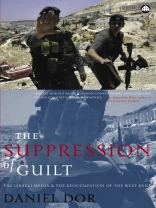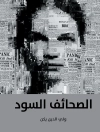In the three years since Operation Defensive Shield – three years marked by denial, deceit, rage and resentment – one fact remains uncontroversial: never, until the operation, had there been such a wide breach between the Israeli collective consciousness and international public opinion. Israeli scholar Daniel Dor measures this gap and concludes that Israeli society has withdrawn into an unprecedented sense of isolation and victimization – largely because of the role played by the Israeli media.
Different media outlets provided their readers and viewers with significantly different perspectives on the operation, but they all shared a certain emotional attitude, not vis-à-vis the operation itself, but in relations to the global discourse of blame against Israel: they all projected an urgent, desperate, almost obsessive urge to suppress, to dismiss, to fend off guilt.
Basing his arguments on detailed analyses of media reports, Dor explores how the Israeli media work within the context of the global media and world opinion, rather than within the classic context of the nation-state – and what it means for the future of the country.
Inhoudsopgave
1. ‘Between the Hague and Jerusalem’: An Introduction
2. Objective Reality and Intertextual Analysis: The Definition of Bias
3. Commitment, Despair and Confusion: The Newspapers
4. ‘Live from the Jenin Area’: The Television News Broadcasts
5. ‘The Problem with Sharon’s Plans’: The Suppression of Intention
6. Manufacturing Identity: Remarks Towards A Conclusion
Notes
Index
Over de auteur
Daniel Dor is a former journalist, teaching in the Department of Communication, Tel Aviv University. He is the author of Intifada Hits the Headlines (Indiana University Press, 2003) and The Suppression of Guilt (Pluto, 2005).












